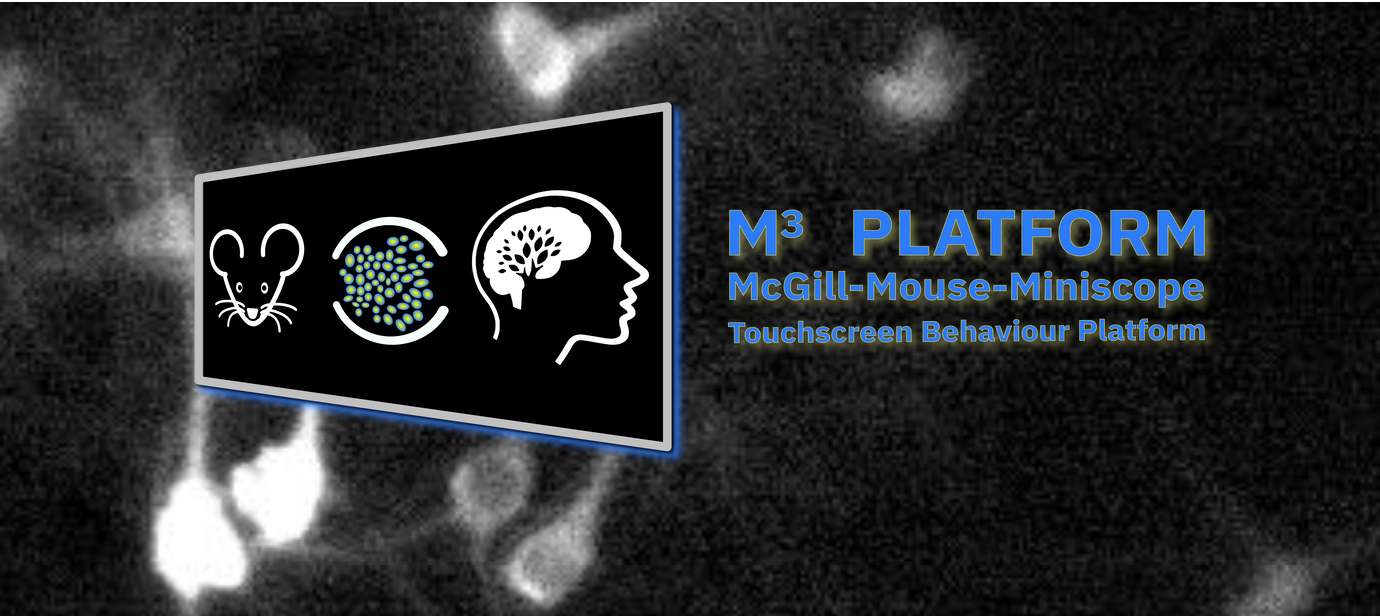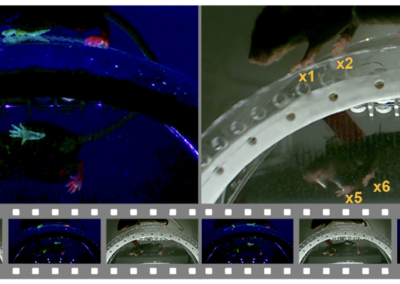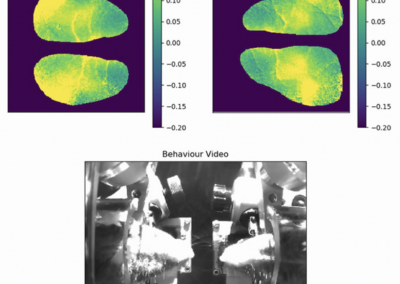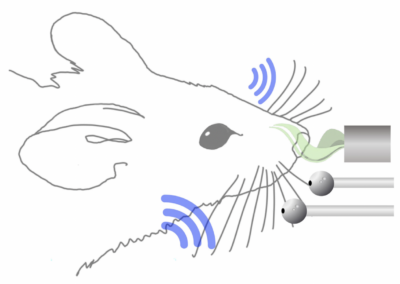M3 Platform: The McGill-Mouse-Miniscope Touchscreen Behavior Platform

A major challenge in carrying out behavioral studies that also measure electrophysiological or celllular imaging signals is integrating together the various behavioral and functional measurement systems. Coralie-Anne Mosser and colleagues have solved this problem for touchscreens and miniscopes through the McGill-Mouse-Miniscope platform. Their platform is a neuroscience laboratory environment for simultaneous neuronal imaging and behavioral monitoring. It can be used for standardized measurements of neuronal activity during complex behavioral tasks and future disease modeling in mice.
The neuronal imaging in the platform is done by calcium imaging with a modified design from the UCLA miniscope project. The imaging data from the miniscope is sent to a custom data acquisition (DAQ) electronics software and USB host controller. The DAQ is soldered on a transistor-transistor logic (TTL) connection, which allows external software to turn the miniscope on or off, allowing for tighter synchronization of neuronal recording to the start of the behavioral trial. Both miniscope design and DAQ software can be downloaded from miniscope.org. The DAQ software runs on C++, and the source code can be downloaded on the same site.
The behavioral data is collected in an automated touchscreens operant conditioning chamber originally designed by Lisa Saksida & Timothy J Bussey (Mar et al., 2013). The behavioral tasks are set up and initiated with the ABET II Touch software, which is connected to the DAQ. Behavioral data consists of mouse position data taken from the chamber’s infrared camera and millisecond scale resolution timestamps for all behavioral and task actions. Both behavioral and miniscope data are combined for analysis via the miniscope software. Their open-source package is written for MATLAB and is available on the researchers’ GitHub repository. Thus, the platform combines the calcium imaging system with behavioral data to create a standardized research platform that allows one to study the neuronal correlates of behavior.
Including standardized data collection and analysis tools creates a unique opportunity for labs to compare their data and develop more complete pictures of neuronal correlates of behavior. Additionally, the platform is part of a more extensive collaboration with the University of Western Ontario to create standardized batteries of behavioral tools for the neuroscience community. The researchers hope that the imposition of these standardized tools will assist in their future efforts to expand to marmoset models and produce increasingly relevant data for human disease.
This research tool was created by your colleagues. Please acknowledge the Principal Investigator, cite the article in which the tool was described, and include an RRID in the Materials and Methods of your future publications. RRID: SCR_023425
Special thanks to Jo Spurgeon, an undergraduate neuroscience major, for providing this project summary! This summary is part of a collection from students in a Computational Methods for Neuroscience Course at American University.
Learn more on the M3 Website
Check out the McGill-Mouse-Miniscope website to learn more about the project.






